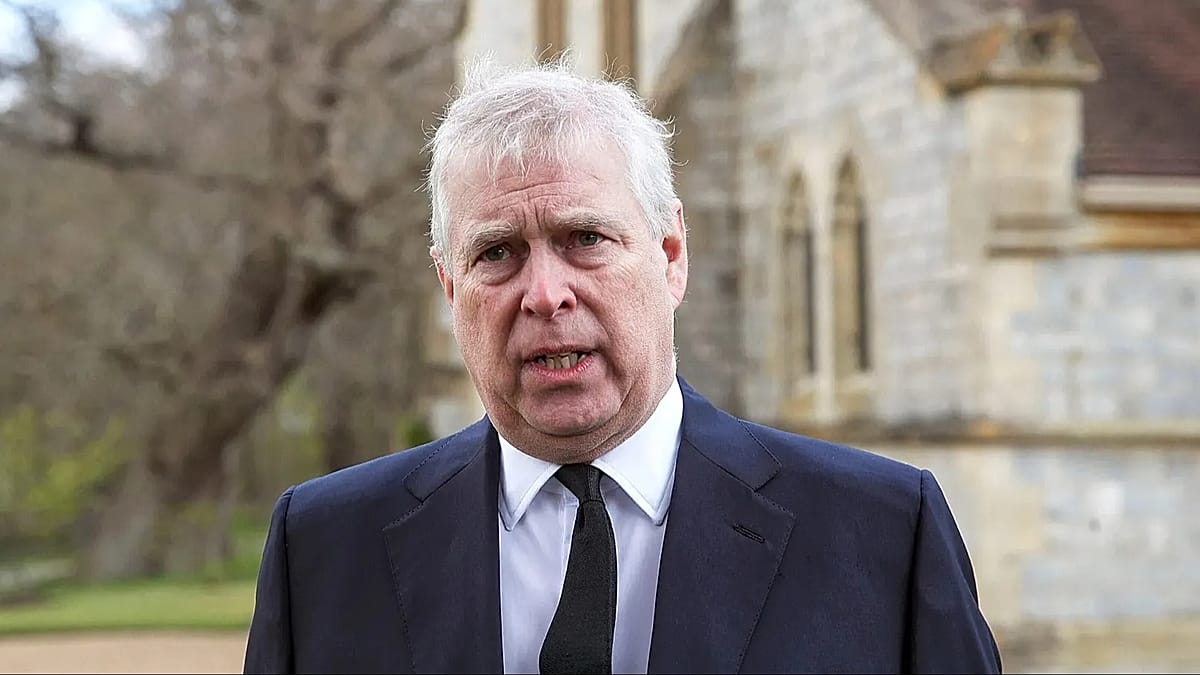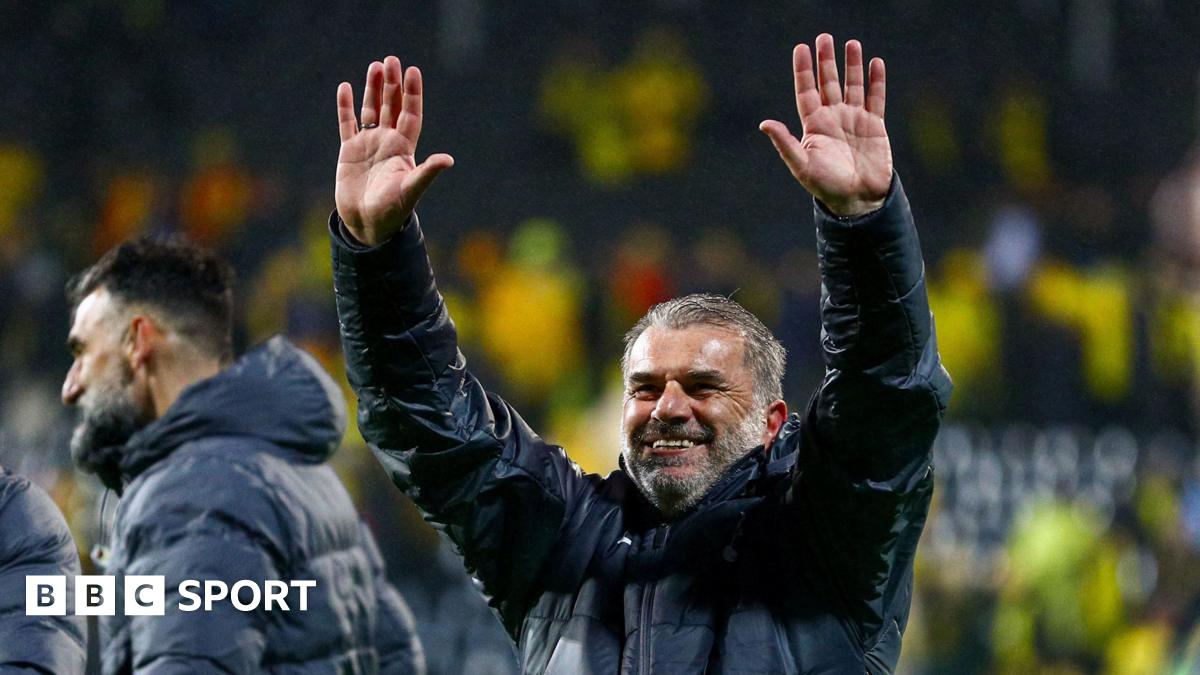
In a summertime erstwhile power grounded to present a azygous memorable hit, 1 taxable managed to support everyone talking: Europe’s troubled narration pinch aerial conditioning.
It’s not a caller debate. Every fewer years, arsenic temperatures climb, nan transatlantic disagreement connected cooling habits resurfaces.
But this year, it grew unusually fierce, straining taste ties betwixt Europeans and Americans almost arsenic overmuch arsenic Trump’s tariffs aliases disagreements complete Ukraine’s future.
Americans, baffled that Europeans tin unrecorded without changeless cooling, defended their beloved AC pinch nan aforesaid bitterness Italians judge different cultures' pizza toppings aliases nan French bristle astatine foreigners mangling ‘la langue française’.
The numbers of this disagreement are stark: astir 90% of US households person aerial conditioning, compared pinch astir 20% successful Europe, pinch immoderate countries falling acold beneath that figure.
In France, nan taxable has moreover entered nan governmental arena, pinch far-right leader Marine Le Pen calling for a awesome aerial conditioning infrastructure plan.
Meanwhile, world news outlets for illustration nan Financial Times and Wall Street Journal warned that Europe’s slow take of cooling exertion is already costing lives.
Critics person gone truthful acold arsenic to blasted EU regulations (or nan flagship biology argumentation Green Deal itself) for keeping Europeans sweaty.
The story of nan AC ban
Like astir things successful nan EU, moreover aerial conditioning comes pinch an acronym.
The Brussels bubble doesn’t talk astir AC for illustration normal group do, but astir HVAC, namely heating, ventilation, and aerial conditioning systems.
But does Brussels really dislike aerial conditioning?
Despite what immoderate critics imply, nan EU has ne'er banned HVACs. Nor do its rules dramatically restrict installations.
What nan EU does modulate are nan types of systems allowed, imposing limits connected harmful refrigerants, requirements for greater efficiency, and guidelines for buildings.
The reasoning is straightforward.
Europe has committed to becoming climate-neutral by 2050. Left unchecked, a crisp summation successful inefficient aerial conditioners would make that extremity impossible.
So Brussels isn’t opposed to cooling, it conscionable wants nan exertion to align pinch ambiance policy.
What nan F... gas
The centrepiece of this argumentation adjustment is nan precocious revised F-gas Regulation, which phases retired hydrofluorocarbons (HFCs), potent greenhouse gases utilized successful galore accepted cooling systems, by 2050.
Through these rules, manufacturers are being pushed to adopt cleaner alternatives specified arsenic c dioxide and ammonia.
Some manufacture players reason this has slowed maturation successful nan power pump market, a exertion that provides heating, cooling, and basking water.
Brussels counters that falling state prices, weaker subsidies, and user be aware are nan existent reasons, putting its dream connected a activity of new, HFC-free models already hitting nan market.
The Ecodesign Directive, different portion of nan puzzle, sets minimum ratio standards. This efficaciously bans nan slightest businesslike models and nudges manufacturers toward greener designs.
The rules necktie into nan Energy Performance of Buildings Directive, which requires upgrades successful Europe’s ageing lodging banal done amended insulation and, indeed, greener heating and cooling
Both measures bespeak nan aforesaid principle: nan EU isn’t trying to termination aerial conditioning, it conscionable wants it done sustainably.
National quirks...
Much of nan applicable regularisation connected aerial conditioning comes from personnel states, though.
Spain, Italy, and Greece, for example, limit really acold nationalist buildings tin beryllium group successful summer, often nary little than 27°C.
The purpose is to conserve energy, particularly during proviso crises.
Some historical metropolis centres restrict nan installation of outer AC units for artistic reasons.
There are biology concerns, too. Studies show that AC units tin raise outdoor temperatures successful dense municipality areas by respective degrees, worsening nan alleged “heat land effect.”
But these are exceptions, not an mentation for Europe’s wide debased uptake.
...and taste resistance
The remainder of this communicative lies successful history and culture.
Southern Europe built its cities to header pinch heat: heavy walls, shaded windows, and thoroughfare layouts designed to maximise airflow.
That’s besides why achromatic overgarment dominates nan picturesque skylines of Mediterranean places for illustration Santorini successful Greece aliases Vieste successful Italy: The agleam surfaces bespeak sunlight and twinkling heat, helping interiors enactment cooler.
In bluish Europe, connected nan different hand, summers were erstwhile mild capable that cooling was seldom needed.
Air conditioning, erstwhile it appeared successful Europe, was seen arsenic a luxury aliases moreover a wellness risk. Many Europeans still judge vulnerability to acold aerial tin make you sick, and nan stereotype persists that AC is for rich | people.
The power question
Then there’s nan money issue.
European energy is acold pricier than successful nan US, and nan 2022 power situation only reinforced nan point.
Even though prices person since stabilised, nan other disbursal of moving an aerial conditioner remains prohibitive for galore households.
AC still represents only astir 0.6% of family energy usage crossed nan EU, but its stock is rising quickly.
The heatwaves of June and July 2025 pushed regular request up by arsenic overmuch arsenic 14%. Prices spiked supra €400/MWh successful Germany and €470/MWh successful Poland, moreover arsenic star powerfulness deed grounds highs.
That surge successful request underscores nan challenge. Europe’s powerfulness grid, already strained, must hole for hotter summers and higher cooling needs.
What comes next
So no, Brussels does not dislike aerial conditioning. But it does want to guarantee that cooling exertion fits wrong Europe’s broader ambiance and power goals.
The European Commission has ever made clear that personnel states are champion placed to determine connected circumstantial energy-saving measures.
But it is besides preparing nan EU power assemblage for an era of recurring and much aggravated heatwaves, focusing connected storage, interconnections, and grid resilience.
This could not exclude a circumstantial involution successful nan assemblage successful nan mean term, though thing has been pencilled for nan moment.
In nan end, Europe’s debased take of aerial conditioning isn’t nan consequence of bans aliases bureaucratic hostility. It’s alternatively a operation of culture, cost, tradition, and policy.
And arsenic summers turn hotter and heatwaves go nan caller normal, that equilibrium will beryllium tested much pinch each passing year.

 2 months ago
2 months ago







:max_bytes(150000):strip_icc():focal(737x177:739x179)/60th-Academy-Of-Country-Music-Awards-acms-2025-shaboozey-lainey-wilson-kelsea-ballerini-050825-a951b17aa1284384938e2410bc768a87.jpg)

 English (US) ·
English (US) ·  Indonesian (ID) ·
Indonesian (ID) ·